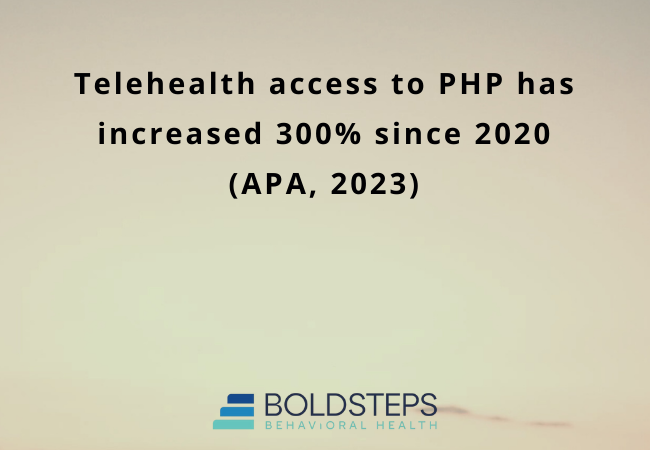When it comes to mental health and addiction treatment, not everyone needs 24/7 residential care — but many people need more than a few weekly therapy sessions. That’s where Partial Hospitalization Programs (PHPs) come in: offering intensive, structured support during the day while allowing individuals to return home each night.
At Bold Steps New Hampshire, our Partial Hospitalization Program in Concord, NH provides a vital middle ground between inpatient care and outpatient therapy. But how do you know if PHP is the right fit for you or your loved one?
This guide explores who benefits most from PHP, how it works, and how it fits within the larger system of Behavioral Health Treatment in New Hampshire.
In this detailed guide, we’ll break down:
- What PHP involves
- The types of individuals who benefit most
- How PHP supports different diagnoses and life situations
- How it compares to other levels of care
- What you can expect day-to-day
- Why it might be the right choice for your recovery journey
What is a Partial Hospitalization Program (PHP)?
A Partial Hospitalization Program is a highly structured day program that provides intensive therapeutic services for individuals managing mental illness, substance use disorders, or both. Clients attend care for about 5–6 hours a day, typically 5 days per week, but do not stay overnight in a facility.
PHP offers many of the same services as inpatient treatment — including individual and group therapy, psychiatric care, medication management, and crisis support — but allows clients to maintain a connection to their home, family, or community.
PHP is often used:
- As a step-down from inpatient hospitalization
- As a step-up from outpatient or IOP care
- As a preventive option for individuals at risk of hospitalization
What Conditions Does PHP Treat?
At Bold Steps New Hampshire, we use our PHP to treat:
- Depression and major depressive disorder
- Anxiety disorders, including panic disorder and social anxiety
- Bipolar disorder (I and II)
- Post-traumatic stress disorder (PTSD)
- Borderline personality disorder and emotion dysregulation
- Obsessive-compulsive disorder (OCD)
- Substance use disorders, including alcohol and drug addiction
- Dual diagnosis (mental health + substance use)
Who Benefits from PHP? A Deep Dive into Candidate Types
Here’s a closer look at who benefits most from PHP, with more nuanced insights based on clinical observations.
1. Adults with Ongoing but Stable Mental Health Conditions
Many PHP participants are individuals who:
- Have lived with depression or anxiety for years
- Have tried medications or weekly therapy but continue to experience functional impairment
- Are overwhelmed by recent life changes like grief, divorce, job loss, or caregiving stress
- Feel “stuck” in outpatient care but not in acute crisis
These clients often describe PHP as the first time they’ve received enough support to make real change. The consistent therapy schedule, peer support, and skill-building groups provide momentum that weekly therapy can’t match.
2. Individuals in Early Addiction Recovery
Recovery from addiction is not linear. Many people complete detox or residential treatment and then wonder what comes next. PHP is a crucial bridge between inpatient rehab and real-life recovery.
PHP benefits individuals who:
- Recently completed inpatient rehab or detox
- Are at high risk for relapse due to triggers or lack of support
- Need dual diagnosis care for co-occurring depression, anxiety, or trauma
- Are ready to reintegrate into the community with structure
Clients in our Addiction Treatment Program in New Hampshire benefit from:
- Daily group therapy focused on relapse prevention
- Medication-assisted treatment (MAT) when appropriate
- Support navigating family relationships, employment, and legal issues
3. People with Dual Diagnosis
A dual diagnosis refers to the presence of both a mental health disorder and a substance use disorder. This population requires a treatment approach that is:
- Integrated
- Multidisciplinary
- Continuous across multiple levels of care
At Bold Steps, PHP includes:
- Joint treatment for mental health and substance use
- Therapists trained in trauma, addiction, and mood disorders
- A care team that collaborates on progress, medications, and discharge planning
4. Those at Risk of Hospitalization — But Still Safe
Not everyone in crisis needs a hospital. Many individuals:
- Feel emotionally unstable
- Are struggling to care for themselves
- Have passive suicidal thoughts (but no current plan or intent)
- Need a break from daily stressors to recalibrate
PHP offers a stabilizing alternative to psychiatric hospitalization. With daily contact, supervision, and structure, many clients avoid the ER altogether.
5. Individuals Recently Discharged from Inpatient Care
Leaving a hospital or residential facility can be destabilizing. PHP creates a step-down plan that continues:
- Medication oversight
- Intensive therapy
- A sense of routine
- Re-engagement with real life
Clients often begin PHP within 24–72 hours of inpatient discharge, preventing relapse or decompensation during the fragile transition.
6. Adults Struggling with Trauma, Grief, or Life Transitions
PHP isn’t just for clinical diagnoses. Many people enroll to manage:
- Grief after the loss of a loved one
- Complex trauma or abuse histories
- Burnout, divorce, or caregiving exhaustion
- Long-term isolation or pandemic-related stress
With group and individual support, clients build a toolbox for emotional resilience, boundaries, and mindfulness.
Who Might Not Be the Right Fit for PHP?
While PHP is an excellent treatment level for many, it may not be appropriate if:
-
The person is experiencing active psychosis or is a danger to themselves or others
-
Medical detox is required and not yet completed
-
The individual has severe cognitive impairment
-
There’s no safe, stable home environment to return to
-
The client is unable to consistently attend daily programming
In these cases, inpatient care or stabilization units may be a better fit. Once stabilized, clients often transition into PHP with us.
What Happens During PHP? A Closer Look at Daily Programming
At Bold Steps New Hampshire, our PHP is structured and predictable — a key part of its therapeutic impact.
Daily Schedule Example
- 9:00 AM – Morning Mindfulness + Goal Setting
- 10:00 AM – Group Therapy: Coping Skills, Relapse Prevention, or DBT
- 11:30 AM – Psychoeducation: Mental health literacy or recovery strategies
- 12:30 PM – Lunch / Reflection Time
- 1:00 PM – Individual Therapy or Medication Review
- 2:00 PM – Group: Communication, Conflict Resolution, or Trauma Processing
- 3:00 PM – Wrap-Up and Planning for Home Integration
Real-World Examples of PHP Candidates
Case 1: James, Age 37
James was recently discharged from a psychiatric hospital after a severe depressive episode. He lives with his partner and works remotely but struggles with motivation and suicidal thoughts. PHP provides the structure he needs to stabilize, access medication support, and rebuild his confidence.
Case 2: Maria, Age 28
Maria completed a 30-day inpatient rehab for alcohol use and was referred to PHP. She attends daily relapse prevention groups, sees her therapist twice a week, and is working on repairing her relationship with her parents.
Case 3: Thomas, Age 42
Thomas has high-functioning anxiety and panic disorder. Outpatient therapy wasn’t helping, and his doctor suggested PHP. After 6 weeks of treatment, Thomas reports a 60% reduction in panic attacks and is tapering back to IOP.
What to Expect from PHP at Bold Steps New Hampshire
Our Partial Hospitalization Program in Concord, NH offers:
-
A supportive, structured environment that promotes healing
-
A multi-disciplinary care team, including licensed therapists, psychiatric providers, and case managers
-
Proven, evidence-based therapies like CBT, DBT, and relapse prevention
-
A recovery plan that evolves with your needs — including step-down to IOP or Outpatient Therapy
-
Access to both in-person and virtual care options for flexibility and convenience
Each client receives a customized schedule and care plan. Most attend PHP for several weeks, depending on progress and individual goals.
How PHP Fits Into a Broader Recovery Journey
PHP isn’t an endpoint — it’s a launchpad. We offer:
- Step-down care: From PHP to Intensive Outpatient Programs (IOP)
- Maintenance care: Ongoing therapy in our Outpatient Treatment Program
- Accessibility: Virtual Treatment Program for those who live far or need remote options
- Aftercare planning: Referrals, support groups, alumni follow-ups
At Bold Steps, we tailor treatment to fit your long-term wellness goals — not just short-term symptom relief.
How PHP Fits into the Continuum of Care
At Bold Steps New Hampshire, PHP is part of a full continuum of behavioral health treatment, including:
| Program | Intensity | Best For |
|---|---|---|
| Inpatient Care | 24/7 supervision | Severe mental health crisis, detox, safety risk |
| PHP | 5–6 hours/day | Intensive treatment with flexibility |
| IOP | 3 hours/day, 3–5 days/week | Continued support and skill-building |
| Outpatient Therapy | 1–2 sessions/week | Maintenance and long-term support |
| Virtual Treatment Program | Remote access | Flexible participation from home |
Why Bold Steps New Hampshire?
- Local care, statewide access
We serve Concord and beyond — both in-person and virtually. - Specialized team for mental health and addiction
Including licensed therapists, addiction specialists, and psychiatric providers. - Whole-person approach
We treat symptoms, yes — but we also help you reconnect with your identity, values, and goals. - Flexible transitions
Step up or down as needed. We adapt with you.
Conclusion
If you’re feeling overwhelmed, stuck, or unsure about what type of help you need — you’re not alone. The truth is, recovery and healing aren’t one-size-fits-all. For many, a Partial Hospitalization Program (PHP) strikes the perfect balance between structure and flexibility, intensity and independence.
At Bold Steps New Hampshire, our PHP offers more than just treatment — it provides a path forward. Whether you’re navigating anxiety, depression, addiction, or a dual diagnosis, PHP can help you stabilize, build confidence, and regain control of your life — without needing to step away from it entirely.
With daily support, compassionate clinicians, and a customized care plan tailored to your needs, PHP may be the step that brings lasting progress, not just temporary relief. Call Bold Steps New Hampshire today at (603) 915-4223, You don’t need to hit rock bottom to start climbing. Let Bold Steps help you take that first — and most important — step forward.
FAQ on Benefit from PHP
How do I know if I need PHP instead of outpatient therapy?
If you’re attending weekly therapy but still struggling to function, PHP offers a higher level of care. It’s ideal for those needing daily structure, frequent therapeutic intervention, or dual diagnosis support.
Who should consider PHP?
PHP is ideal for:
-
Adults with moderate to severe depression, anxiety, or bipolar disorder
-
Individuals in early addiction recovery
-
People with dual diagnoses
-
Clients stepping down from inpatient care
-
Those in crisis but medically stable
What’s the difference between PHP and IOP?
PHP provides more intensive care — 5–6 hours a day — while IOP typically involves 3 hours/day, 3–5 days/week. PHP is often a transitional step between inpatient and IOP care.
Can I still work while in PHP?
Some clients with flexible schedules or part-time roles can continue working, but PHP is a daytime commitment and typically requires full participation during the week.
How long does PHP last?
PHP programs typically last 2 to 6 weeks, depending on your clinical needs and progress. Many clients then step down to IOP or outpatient therapy.
Does Bold Steps offer virtual PHP?
Yes! Through our Virtual Treatment Program in New Hampshire, eligible clients can attend PHP via secure telehealth, making care accessible statewide.



